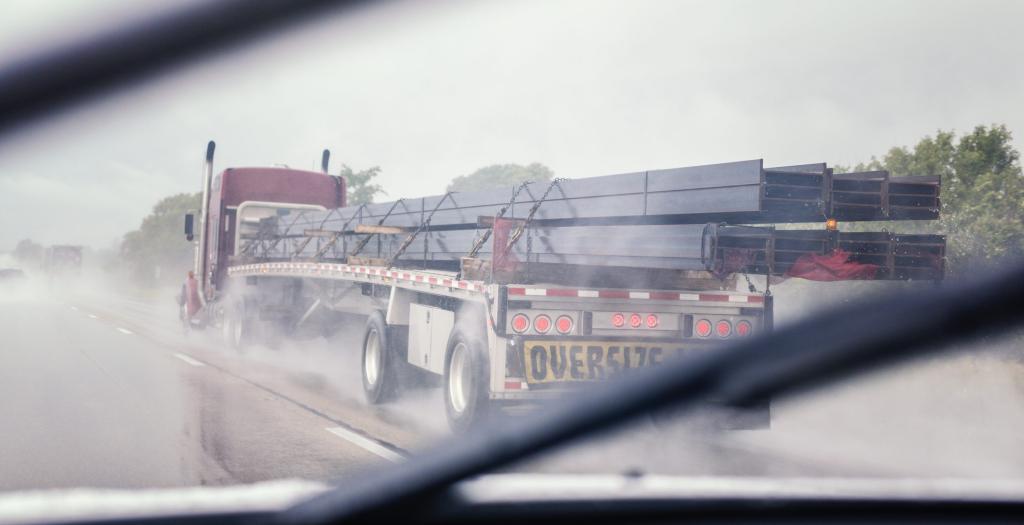Blog
Blog
Law for Truckers: Provincial vs. Federal Regulations for Transportation Companies
Author: todd-strang posted in: Corporate Commercial
Depending on whether a company operates within a single province or across provincial or international borders, they may be subject to different sets of governmental regulation. To make the most of their business and comply with regulations, trucking companies need to understand the differences between provincial and federal regulations and how to properly separate their operations.
Provincial vs. Federal Regulations
The key difference between provincial and federal regulations is typically vehicle weight. The weight of a truck is what triggers the requirement to obtain a Safety Fitness Certificate and the driver’s hours of service rules. Federal regulations regarding these rules are generally more onerous than their provincial counterparts. Accordingly, wherever possible, transportation companies should seek to fall under provincial jurisdiction.
Determining Jurisdiction
In Total Oilfield Rentals Limited Partnership v. Canada (Attorney General), 2014 ABCA 250, the Alberta Court of Appeal explained how to determine when federal rules apply to an Albertan company engaged in transportation beyond the borders of Alberta. The Court placed considerable emphasis on whether a transportation business offers “continuous and regular” services to other provinces or countries. If it does, that business will be federally regulated.
Separate Entities and Regulations
According to the above, a transportation company that offers continuous and regular services outside of Alberta is subject to federal regulations even if most of its fleet does not leave the province. This creates a problem for the company: it is paying for its vehicles to comply with federal regulations, even though most of its units stay within Alberta’s borders.
To solve this problem, a transportation company may divide its fleet into two separate entities: one who consistently operates outside the province (the “Federal Company” and another that does not (the “Provincial Company”).
However, there are several factors transportation companies must consider to ensure that the Provincial Company is considered distinct from the Federal Company. These factors include:
- The degree of integration between the two companies.
- Distinct employee groups with no interchange between the two types of drivers.
- Different terms and conditions of employment for employees working for the different companies.
- Distinctive types of vehicles used for each operation.
- Licensing and authorization for vehicles to cross borders.
- Distinct clientele distinguishing the two transportation undertakings.
- Different handling of dispatching.
There are several examples of businesses unsuccessfully attempting to separate into two different entities falling under different regulations. In Servichem Inc. (1991) 16 CLRBR (2d) 48, the Canada Labour Relations Board found that the employer’s business was one and indivisible due to centralized direction and control. And in Lougheed Express Ltd., (1981) 1 CLRBR 75, the Board found that the two companies were truly one organization because they shared an integrated pay system, integrated invoicing and billing, shared dispatching personnel, and cross-utilization of trucks, equipment, and employees.
Mitigating Risks
To minimize the risk of being considered integrated, a transportation enterprise should carefully structure the operations of its two business entities to ensure a separate character to the businesses, with minimal connections between them. Such companies should consider implementing separate physical work locations, distinct workforces, separate revenue and accounting, and fundamentally different services delivered to distinct markets should be considered.
The corporate and commercial lawyers at KMSC Law can assist you with separating your transportation company into two different entities: one regulated by federal law, and the other by provincial law. Such a separation can save you significant amounts of money in regulatory costs and expenses for years to come.
Our lawyers can advise how to make these two entities truly separate, which is key to avoiding decisions from the Labour Board hitting your company with large regulatory fines. Call or e-mail the Business Law team at KMSC today for more information.
Editor's picks.
February 27, 2023
Myths and Realities of the Minor Injury Cap
If you have been injured in an accident, you may have been told that your…
January 30, 2023
Get What You Need: Compensation in Personal Injury Claims
If you have been injured in an accident, be it from a slip-and-fall or an…
May 16, 2022
Common Questions and Concerns on Section B
Introduction Finding all the benefits you may be eligible for after a motor vehicle accident…
At KMSC, we are committed to providing practical and effective legal solutions for our clients.
If your issue is urgent, please don’t hesitate to contact us toll-free at 1.888.531.7771, we’d be happy to assist you.


